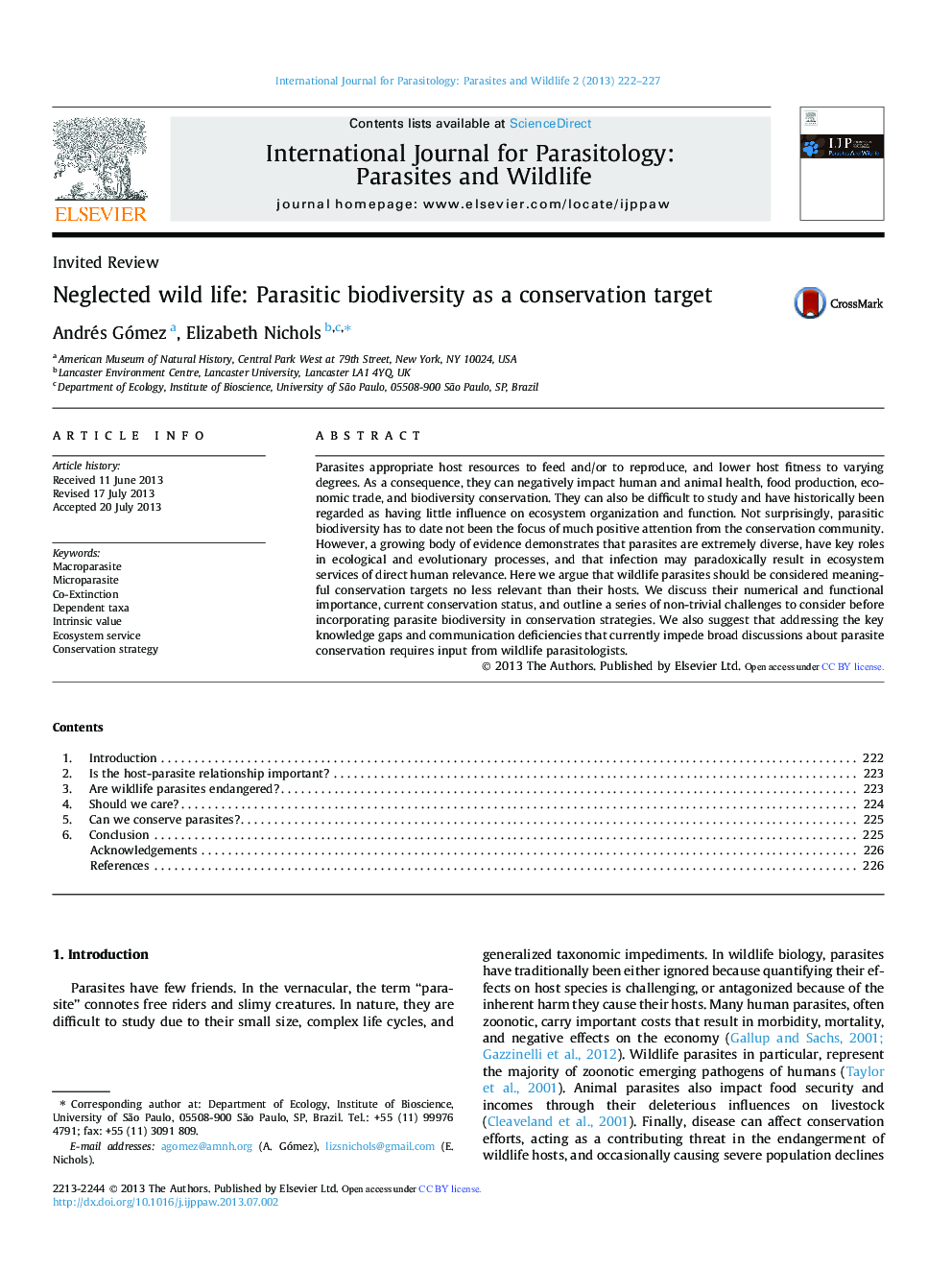| Article ID | Journal | Published Year | Pages | File Type |
|---|---|---|---|---|
| 2055299 | International Journal for Parasitology: Parasites and Wildlife | 2013 | 6 Pages |
•Parasites are extremely diverse and ubiquitous in natural ecosystems.•They have critical roles in ecological and evolutionary processes.•Many parasite species are believed to be threatened or already extinct.•All arguments for the conservation of any species apply equally well to parasites.•Parasite conservation can be a very challenging endeavor.
Parasites appropriate host resources to feed and/or to reproduce, and lower host fitness to varying degrees. As a consequence, they can negatively impact human and animal health, food production, economic trade, and biodiversity conservation. They can also be difficult to study and have historically been regarded as having little influence on ecosystem organization and function. Not surprisingly, parasitic biodiversity has to date not been the focus of much positive attention from the conservation community. However, a growing body of evidence demonstrates that parasites are extremely diverse, have key roles in ecological and evolutionary processes, and that infection may paradoxically result in ecosystem services of direct human relevance. Here we argue that wildlife parasites should be considered meaningful conservation targets no less relevant than their hosts. We discuss their numerical and functional importance, current conservation status, and outline a series of non-trivial challenges to consider before incorporating parasite biodiversity in conservation strategies. We also suggest that addressing the key knowledge gaps and communication deficiencies that currently impede broad discussions about parasite conservation requires input from wildlife parasitologists.
Graphical abstractFigure optionsDownload full-size imageDownload as PowerPoint slide
